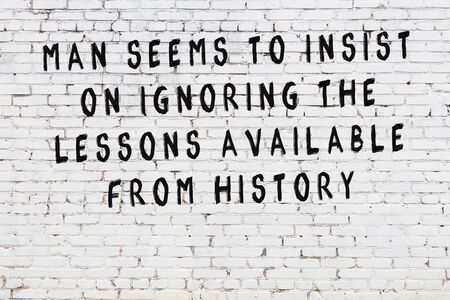Understanding the British Context: Why the Way We Seek Readings Matters
In the UK, our approach to seeking guidance—whether from psychics, tarot readers, or spiritual advisers—has always been shaped by a rich tapestry of cultural attitudes and historical influences. Unlike some cultures where spiritual consultation is woven into daily life, British society has long maintained a subtle balance between healthy scepticism and quiet curiosity. This distinctively British outlook means that how we access readings, be it online or in-person, is coloured by local norms surrounding privacy, trust, and authenticity. The reserved nature typical of many Brits often leads to a preference for discretion and a desire for genuine connection. Moreover, the UK’s history with spiritualism—from Victorian parlour séances to today’s bustling high street psychic shops—continues to inform public perceptions. In recent years, digital transformation and increased awareness of mental health have also shifted expectations around personal development and support. As a result, British seekers must navigate not only practical considerations but also deeply rooted cultural factors when choosing between online and in-person readings. Understanding these nuances sets the stage for making informed choices that align with both individual needs and wider societal values.
Convenience and Accessibility: Online Readings Across the UK
One of the primary advantages of online readings for British seekers lies in their remarkable convenience and accessibility. In a country marked by diverse geographies—from bustling cities like London and Manchester to rural villages scattered across Scotland, Wales, and Northern Ireland—online services effectively bridge the gap between location and access. For many, especially those living outside major urban centres, finding reputable in-person readers can be challenging. Online platforms make it possible for individuals from Cornwall to the Highlands to connect instantly with practitioners who may otherwise have been out of reach.
For city dwellers, time is often a scarce commodity. Busy professionals juggling work, commuting, and social obligations appreciate being able to schedule sessions at unconventional hours without sacrificing quality or discretion. Meanwhile, online readings cater to those who value privacy; appointments can be booked discreetly from the comfort of home, avoiding the potential awkwardness or self-consciousness that sometimes comes with visiting a physical venue.
How Online Readings Meet Varied British Needs
| Situation | Online Reading Benefit |
|---|---|
| Rural Residents | No need for lengthy travel; access to a wider pool of qualified readers |
| Urban Professionals | Flexible booking times; fit sessions around busy schedules |
| Students & Young Adults | Budget-friendly options; easy access via mobile devices |
| Elderly or Less Mobile | Accessible from home; eliminates mobility barriers |
Tackling Digital Literacy and Connectivity Gaps
While online readings offer clear advantages, it’s important to acknowledge the digital divide that persists in some parts of Britain. Reliable internet access and basic tech skills are essential prerequisites. However, most reputable online reading platforms are designed to be user-friendly, offering support and guidance for first-time users. As internet infrastructure improves nationwide, more people can benefit from these services regardless of postcode.
Summary
In summary, online readings significantly enhance accessibility for British seekers across different regions and lifestyles. Whether you’re in a remote cottage or a city flat, this format adapts seamlessly to modern British life—making spiritual guidance more convenient than ever before.

3. Face-to-Face Connection: The Tradition of In-Person Readings
For many in the UK, the tradition of in-person readings holds a special place, rooted deeply in British values and social customs. Meeting a reader face-to-face allows for a richer, more nuanced interaction that online platforms often struggle to replicate. The act of sitting across from someone fosters an atmosphere of trust and authenticity—a vital aspect in a culture where discretion and personal integrity are highly prized.
British etiquette shapes the experience of an in-person reading significantly. There is an unspoken code of politeness and respect, which both reader and seeker observe throughout the session. Small gestures—like offering a cup of tea or engaging in gentle small talk before delving into deeper subjects—help build rapport and put participants at ease. These customs reinforce the sense of ceremony around the reading, making it feel like a meaningful event rather than a transactional service.
Local community ties also play an important role. Many Britons prefer to consult readers who are recommended by friends or known within their area, further strengthening trust. Face-to-face readings often take place in familiar settings—be it a cosy living room, a quaint local shop, or during community fairs—which enhances the comfort level for seekers. This personal connection not only reassures clients but also helps foster ongoing relationships with trusted readers.
The enduring appeal of in-person sessions reflects a broader British appreciation for tradition and genuine human contact. For seekers who value privacy, subtlety, and tangible connections, face-to-face readings offer an experience that feels both safe and sincere—a quality that remains highly sought-after despite the rise of digital alternatives.
4. Privacy and Anonymity: British Preferences and Online Prospects
For many in the UK, privacy is not just a preference but an expectation, especially when it comes to personal matters like psychic or spiritual readings. Discretion and boundaries are highly valued; British clients often wish to maintain control over what they share and with whom. In-person readings can sometimes challenge this need for anonymity, particularly in smaller towns or communities where everyone knows each other. The mere act of being seen entering a spiritualist’s shop or waiting room may be enough to deter some seekers.
Online readings, on the other hand, offer a layer of anonymity that can feel reassuring. Clients can participate from the comfort of their own home, without fear of running into acquaintances or being subject to unwanted attention. However, this does not mean online platforms are flawless regarding privacy. Concerns about data security and confidentiality are real; users must trust that their information will not be mishandled or shared.
| Aspect | In-Person Readings | Online Readings |
|---|---|---|
| Anonymity | Limited – possibility of being recognised by others | High – can use pseudonyms and remain unseen |
| Discretion | Dependent on practitioner’s professionalism and location | Easier to control environment; private sessions possible |
| Data Security | No digital trail but physical records may exist | Relies on platform security; risk if not encrypted properly |
| Personal Boundaries | May feel pressured face-to-face to disclose more than intended | Easier to set limits through chat, email, or video calls |
The British tendency towards reserve means that many will gravitate towards whichever format best safeguards their privacy and offers them a sense of control. While online readings score highly for anonymity and self-imposed boundaries, prospective clients must do their due diligence—checking site encryption, practitioner credentials, and privacy policies—to ensure their information remains confidential. Ultimately, whether online or in-person, the effectiveness of discretion depends on both the client’s choices and the ethical standards of the reader.
5. Quality, Legitimacy and Scams: Knowing Who to Trust
When weighing online versus in-person readings, British seekers must exercise discernment regarding quality and legitimacy. Both formats present unique risks, but understanding the landscape can help avoid disappointment or outright scams.
Systematic Comparison of Risks
Online Settings
The internet offers convenience, but it is rife with potential pitfalls. Unregulated platforms allow anyone to claim psychic or spiritual credentials, making it difficult to verify expertise. Common red flags include requests for large upfront payments, pressure to purchase additional services, vague testimonials, and a lack of verifiable business details. In the UK, reputable online readers often provide clear information about their qualifications and are open about pricing structures. Check if they belong to professional associations, such as the Spiritualist National Union or the British Astrological & Psychic Society, which set ethical standards.
In-Person Settings
While face-to-face readings can feel more authentic, physical venues are not immune to fraudsters. Watch for practitioners who make extraordinary claims, demand secrecy, or use fear tactics to upsell further sessions or products. Reputable in-person readers typically have established premises—sometimes with local council registration—and encourage you to ask questions. Word-of-mouth recommendations and reviews from local communities can be invaluable in assessing credibility within the UK context.
Navigating the UK’s Legal and Cultural Landscape
Consumer Protections
The UK has specific regulations governing spiritual services. The Consumer Protection from Unfair Trading Regulations 2008 prohibits misleading practices and requires transparency about what is being offered. Genuine practitioners will clarify that readings are for entertainment or guidance purposes, not guaranteed predictions. If something feels off, British citizens have recourse through Trading Standards and consumer protection agencies.
Cultural Nuances
British culture values discretion and scepticism regarding supernatural claims. Don’t hesitate to ask for credentials or references; a legitimate reader will not take offence. Many respected practitioners also offer introductory sessions or clearly outline your rights as a client under UK law.
Key Takeaways for British Seekers
Whether online or in person, always research thoroughly, trust your instincts, and utilise the UK’s consumer protections. By knowing what red flags to look out for and understanding your legal rights, you can better ensure an experience that is both safe and worthwhile.
6. Making the Right Choice: Factors for British Seekers to Consider
When deciding between online and in-person readings, British seekers should carefully weigh several essential factors to ensure a satisfying experience. Below is a systematic breakdown of key decision-making criteria, supported by practical examples relevant to UK culture and daily life.
Cost
For many in the UK, budget is a significant consideration. Online readings often offer competitive rates due to lower overheads, with some practitioners based outside major cities like London or Manchester providing affordable sessions via Zoom or Skype. In contrast, in-person readings—especially those held in historic venues such as Bath’s esoteric bookshops or London’s spiritual fairs—may carry higher fees to cover venue costs. Assess whether the added value of face-to-face interaction justifies the price difference for your circumstances.
Atmosphere
The ambience can significantly influence your comfort and openness during a reading. In-person sessions in a cosy tea room in York or a tranquil therapy centre in Edinburgh provide an immersive atmosphere steeped in British charm, often enhanced with traditional touches like a cup of Earl Grey. Conversely, online readings allow you to create your preferred environment at home, perhaps lighting a candle or playing gentle music. Consider which setting helps you feel most relaxed and receptive.
Personal Comfort and Privacy
Some people value the anonymity and convenience of remote readings, especially if they’re new to spiritual practices or live in rural areas from Cornwall to the Highlands. Online sessions eliminate travel time and can be scheduled flexibly around busy workdays or family commitments. On the other hand, those who cherish personal connection might prefer meeting their reader face-to-face, appreciating nuances in body language and local rapport that are sometimes lost on screen.
Accessibility
If mobility or travel restrictions are an issue—perhaps due to unreliable public transport in remote Welsh villages or tight city parking—online readings offer straightforward access without logistical hassles. For others, part of the experience may include exploring unique local venues or engaging with spiritual communities at regional fairs and festivals across England, Scotland, Wales, and Northern Ireland.
Cultural Fit
Finally, consider whether the practitioner’s approach aligns with British sensibilities. Some clients prefer readers familiar with UK traditions, folklore, or local customs (such as referencing St George’s Day or Celtic festivals). Whether online or offline, ensure your chosen reader respects your values and communicates in a way that feels authentic and relatable within the British context.
Summary
No single format suits everyone; it comes down to balancing cost, atmosphere, personal comfort, accessibility, and cultural fit. By systematically considering these factors—and reflecting on what resonates most with your lifestyle and expectations—you’ll be better equipped to choose the reading style that meets your needs as a British seeker.


